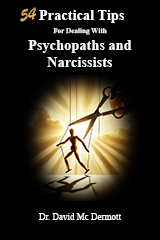- Home
- Mind control
- Cialdini influence
- Robert Cialdini
Robert Cialdini -
"Influence - Science and Practice"
Robert Cialdini Influence Part 1 Part 2
Here we will continue reviewing Robert Cialdini's book "Influence - Science and Practice" with special reference to how the principles are applied in destructive cults.
5. Authority
Authority is obviously important in society for maintaining law and order, the satisfactory running of institutions, the peaceful organization of families and so on. Children learn this at a very early age and it remains a very powerful motivator throughout life.
For the children, parents know more than they do and parents are in charge of the rewards and punishments. A similar situation persists into adulthood, only now we have bosses, doctors, government leaders etc.
And it makes sense to defer to them because they have more information or more power than we have. Robert Cialdini says that it makes so much sense, in fact, that we often do it when it makes no sense at all.
When is there authority?
So how do we recognize authority? Think titles, uniforms, cars, letters after your name, tone of voice…
Notice that all these fake-able! There is more authority in a business suit than in a pair of jeans. Anybody can simply sign letters after their name, or call themselves 'Dr.'.
Cult leaders and authority
This one is particularly important for cults when you consider that many cult leaders are psychopaths. Robert Hare, an expert on psychopathy quotes one psychopath who says “we lie as often as we breathe."
So it's business as usual for cult leaders to lie about their qualifications and so on. Another important factor here is the fact that psychopaths do not experience guilt or remorse. Nor are they embarrassed if they are caught out in a lie. They simply change the story to continue the manipulation. So it's very easy for them to say whatever they like, and even lie, with an air of authority.
If you have doubts about any particular group, check the credentials of the leaders yourself! The question you ask are “is this authority truly an expert?" and “how truthful can we expect this expert to be?"
6. Scarcity
The idea is “less is best and loss is worst".
If something is scarce and we like it, we want it more. And humans are loss-aversive creatures. We don't like to lose things or miss out on something.
Some people, for example, absolutely have to answer the mobile phone. Because if they don't, well…, they might miss something.
Advertisers used this principal regularly. “The first five people to call will get…", “Get it while stocks last!"
Scarcity works for 2 reasons. If something is scarce it often costs more, and we often use value as a shortcut to assessing quality. The "more expensive equals better" idea.
And when something is scarce we feel we are losing freedoms, and we react strongly to that - by wanting it more.
Doctrines
The doctrine of destructive cults is designed to invoke the scarcity principle. (After all, they have the 'Truth', with a capital T)
The information that the group has is unique. You can't get it anywhere else. This leader works at a personal level unlike anybody else. Other groups have got it wrong. Members may tell new recruits that they need to sign up now or they will miss an opportunity to… Be saved by God, be one of the chosen few, hear this particular lecture given by the leader and so on...
This principle can be tricky to combat because when we hear something is scarce we tend to stop thinking critically and want to act. But what we need to do is think critically, specifically to ask ourselves if this thing is actually scarce or whether the scarcity is being manufactured.
Weapons?
Robert Cialdini calls these weapons of influence because they function outside of the normal awareness of most people. Compliance professionals are very aware of these tactics and will often try and use combinations of them to get what they want. When you consider how powerful each one is, combinations of them may leave a person defenseless!
Robert Cialdini points out repeatedly that our world is so busy that we have to take shortcuts if we are not to be paralyzed by information. This means our decision making has changed somewhat.
We decide based on the most relevant information, often one of the principles described, without a thorough critical assessment. And that’s in normal life.
In cult life where critical thinking has been severely diminished, the impact of these principles is amplified…
Robert Cialdini - a must read...
This book is a must read for everybody in order to learn about influence and persuasion, but especially for those who have been victims of destructive mind control. Having read the book you will notice that you are much more aware of when and where these techniques are being used, whether intentionally or not!
Read more about cult control...
Like this page?
Don't wait.
Get help now.
If you're trapped in an abusive relationship, struggling with the impact of a cult, or worried about someone you love, you need answers and support today.
Reach out to me via the Contact page.
We'll talk, create a plan and take the first steps to freedom. Compassionate, judgement-free guidance and personalized strategies. Your privacy is 100% protected.
Available now!

54 Practical Tips For Dealing With Psychopaths and Narcissists
You have the theory but how do you actually apply it? This book spells it out...
Dealing With Psychopaths
Free monthly newsletter with practical tips and ideas to help you understand and navigate the chaos that they cause!